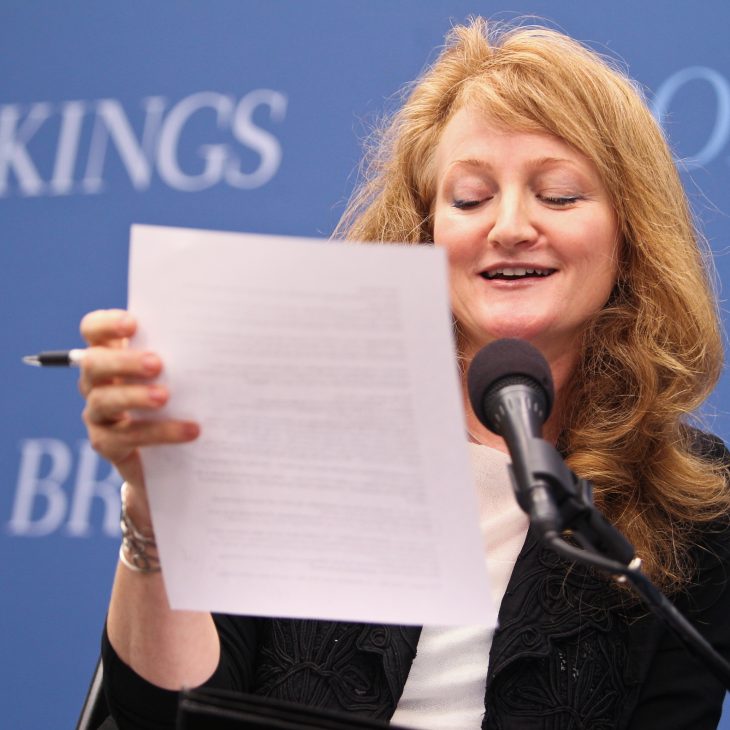Conversations with Eboo: Krista Tippett
May 20, 2020

After this crisis, what? What changes and what stays the same? What gets worse and what gets better?
Those were some of the themes touched on when I caught up with my friend Krista Tippett recently, right before she gently removed herself from the world for a two-week writing retreat. She can’t physically go away, of course, but she can continue the practice she has developed in writing her many other luminous books. But, this time not at a bucolic writer’s retreat but rather in her St. Paul, MN home.
She keeps away from email and social media for at least an hour after waking up. She writes until noon and at that time takes two hours completely away from work. She makes sure she gets at least an hour of exercise a day. And, she prioritizes sleep. “Taking care of your body is taking care of your spirit,” she told me.
Krista Tippett has been taking care of our spirits (individually, as a nation and a world) for a long time. She launched ‘Speaking of Faith’ on Minnesota Public Radio in 2001, changed the title to ‘On Being’ in 2010 and then created several related initiatives, including the podcast ‘Poetry Unbound’ and the ‘Civil Conversations Project.’ The thread that runs through everything Krista does is the insistence that the various parts of our being—the physical and the spiritual, the private and the public, the individual and the social, the joy and the suffering – are integrated into a kind of cosmic wholeness.
The spaces where we Americans are most integrated and the spaces where we are most fractured are crystal clear in this crisis. We have a visceral idea of who is essential, who really matters: caregivers, artists, delivery drivers, shelve stackers, food producers, people who serve and weave communities together. And, as Krista emphasized to me, “The work ahead is can we not just tell them how grateful we are for them, but can we build structures of support and thriving around their essentialness.”
The scenes of fracture, pain and loss –principally the deep racial inequities of Covid-19 deaths –are deeply saddening for Krista but not at all shocking. In fact, they are entirely predictable. They are a five-alarm moral fire. They long have been.
The most hopeful thing she is seeing is the remarkable, creative leadership on the local level, from mayors and governors to public health officials and hospital chaplains. So many of them are providing glimpses of what a better new normal might look like.
Here’s how we ended the conversation:
“There is an incredible opening to deep structural reformation, to how we live our lives and organize our societies.” However, Krista warns, “Nothing is inevitable. We have to make that happen, and it also go the other way. That question is the definition of the work ahead. The real hardship and the real work is in front of us. The work is going to be on imagination and courage and regeneration. We have the capacity in our local places to incubate new forms and new structures and sharing that learning.”
Share
Related Articles
Interfaith America Interview
Why We Belong to Each Other: A Conversation with Krista Tippett and Eboo Patel
Interfaith America Interview
‘It’s a Hard Time in the Life of the World’ — a Conversation with Krista Tippett
Interfaith America Interview
Why I’m Launching a Podcast: “Interfaith America with Eboo Patel”



